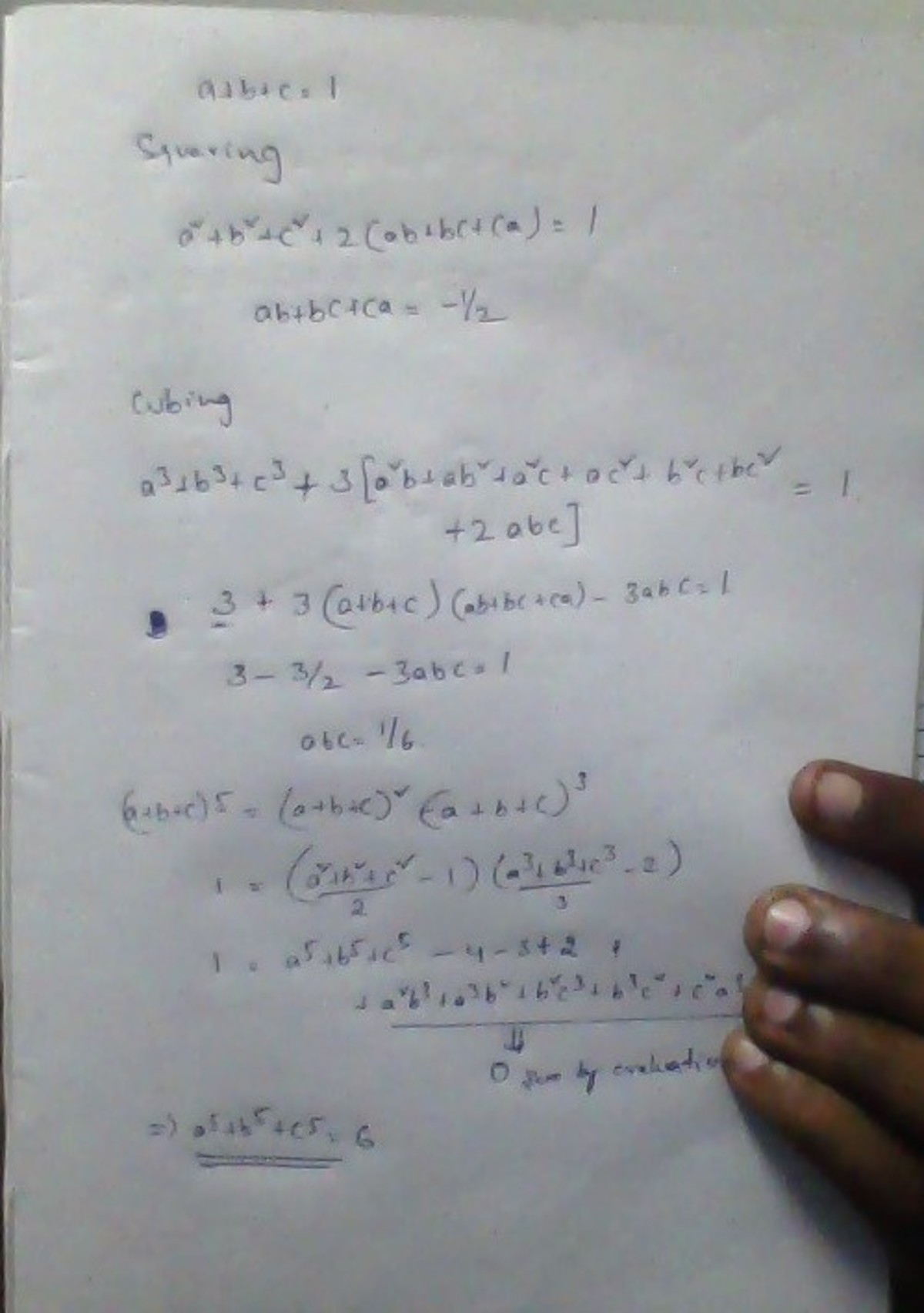You skipped four
a a 2 a 3 a 5 + + + + b b 2 b 3 b 5 + + + + c c 2 c 3 c 5 = = = = 1 2 3 ?
The answer is 6.
This section requires Javascript.
You are seeing this because something didn't load right. We suggest you, (a) try
refreshing the page, (b) enabling javascript if it is disabled on your browser and,
finally, (c)
loading the
non-javascript version of this page
. We're sorry about the hassle.
2 solutions

Newton’s Sum is a much easier and shorter way. Let us consider a polynomial P ( x ) = x 3 + k x 2 + l x + m which have a,b,c as its roots and S n = a n + b n + c n By Newton’s Identities: ( 1 ) S 1 + k = 0 ⇒ k = − 1 ( 1 ) S 2 + ( k ) S 1 + 2 l = 0 ⇒ l = − 2 1 ( 1 ) S 3 + ( k ) S 2 + ( l ) S 1 + 3 m = 0 ⇒ m = − 6 1 Therefore, P ( x ) = x 3 − x 2 − 2 1 x − 6 1 ( 1 ) S 4 + ( − 1 ) S 3 + ( − 2 1 ) S 2 + ( − 6 1 ) S 1 = 0 ⇒ S 4 = 6 2 5 ( 1 ) S 5 + ( − 1 ) S 4 + ( − 2 1 ) S 3 + ( − 6 1 ) S 2 = 0 ⇒ S 5 = 6
Ya i agree by newton sums it is only pf 3 min
Multiply first and second equation and separate out the expression of who h you want to find out value on one side of equation. Now get value of cyclic summation of xy and value of xyz from first 2 equations to get answer as 6